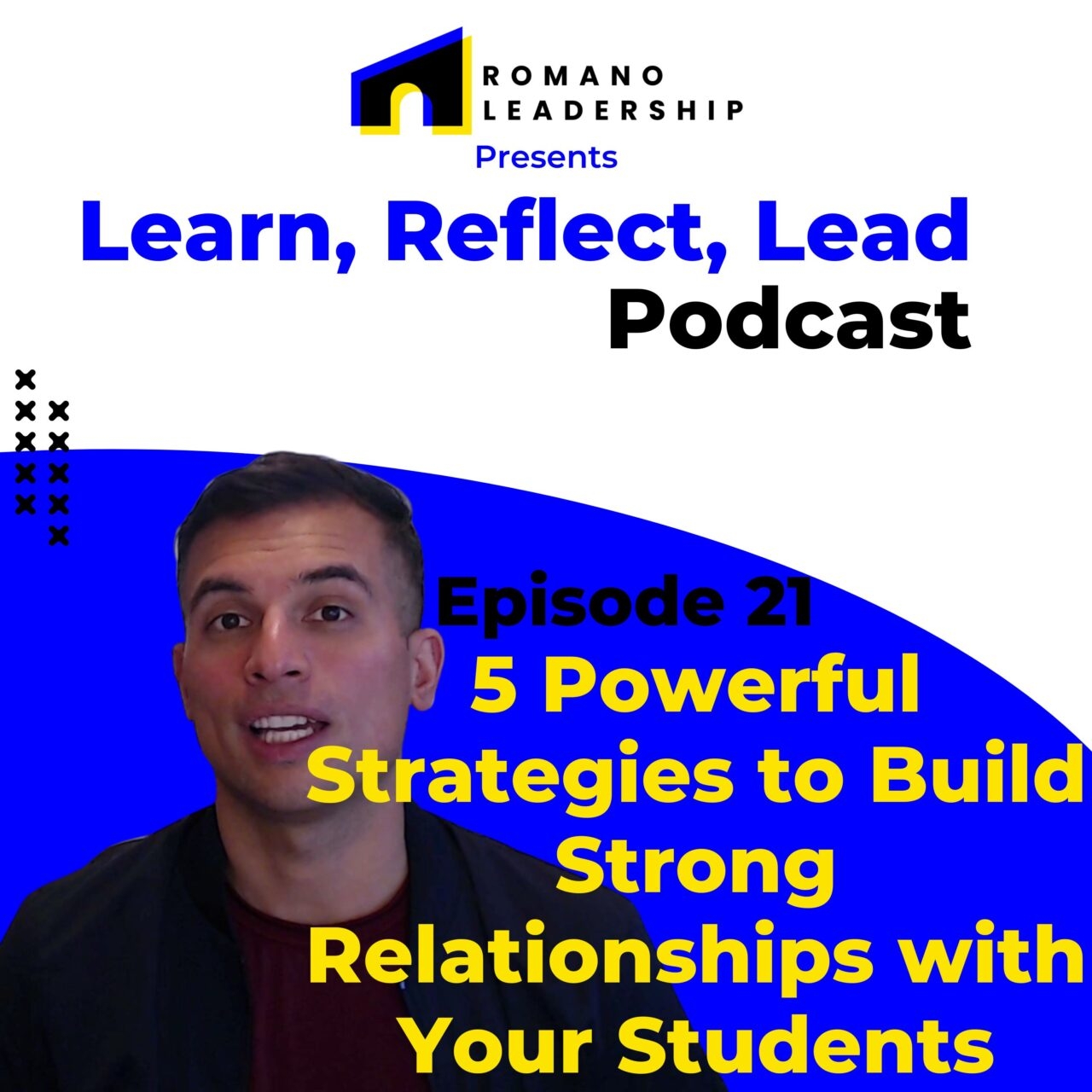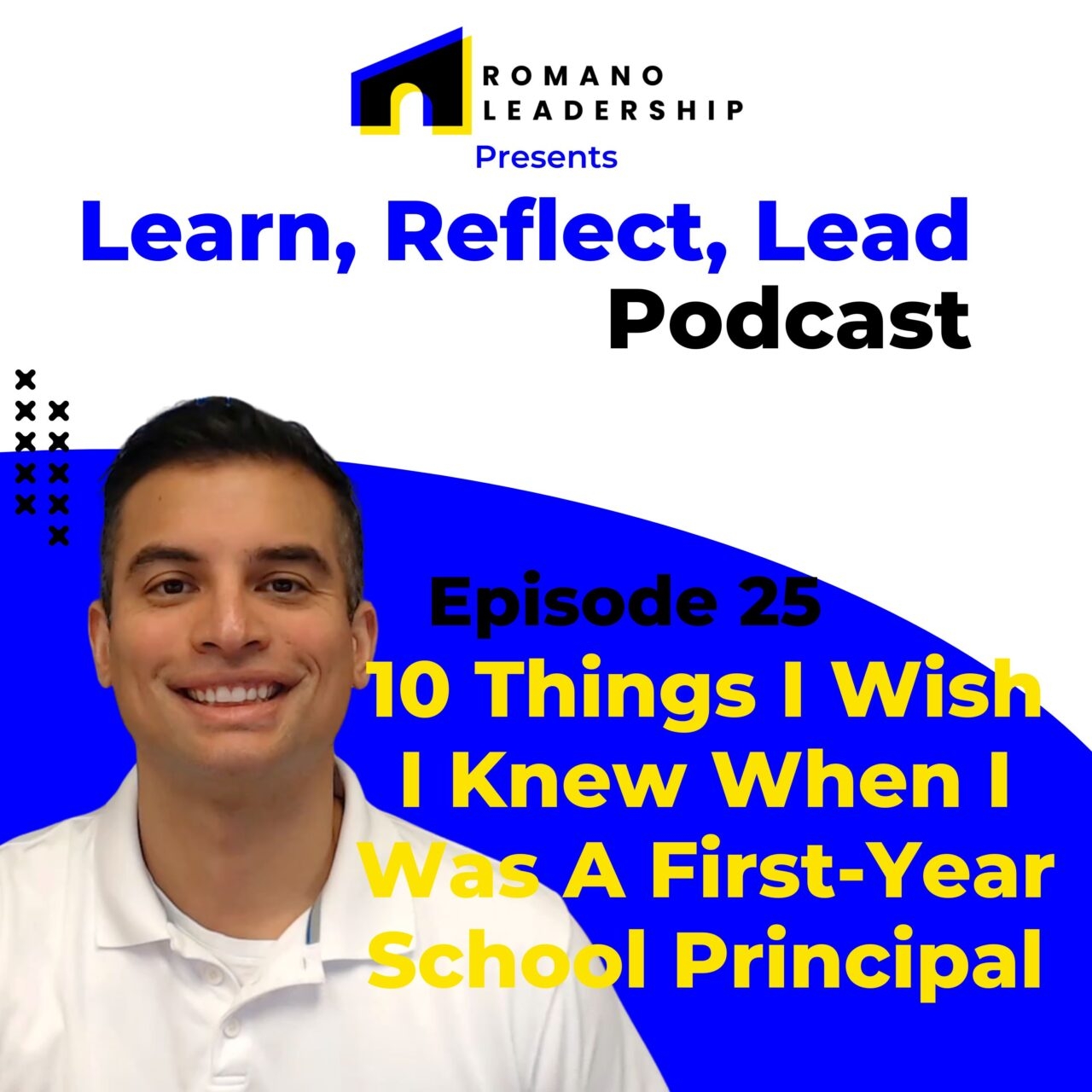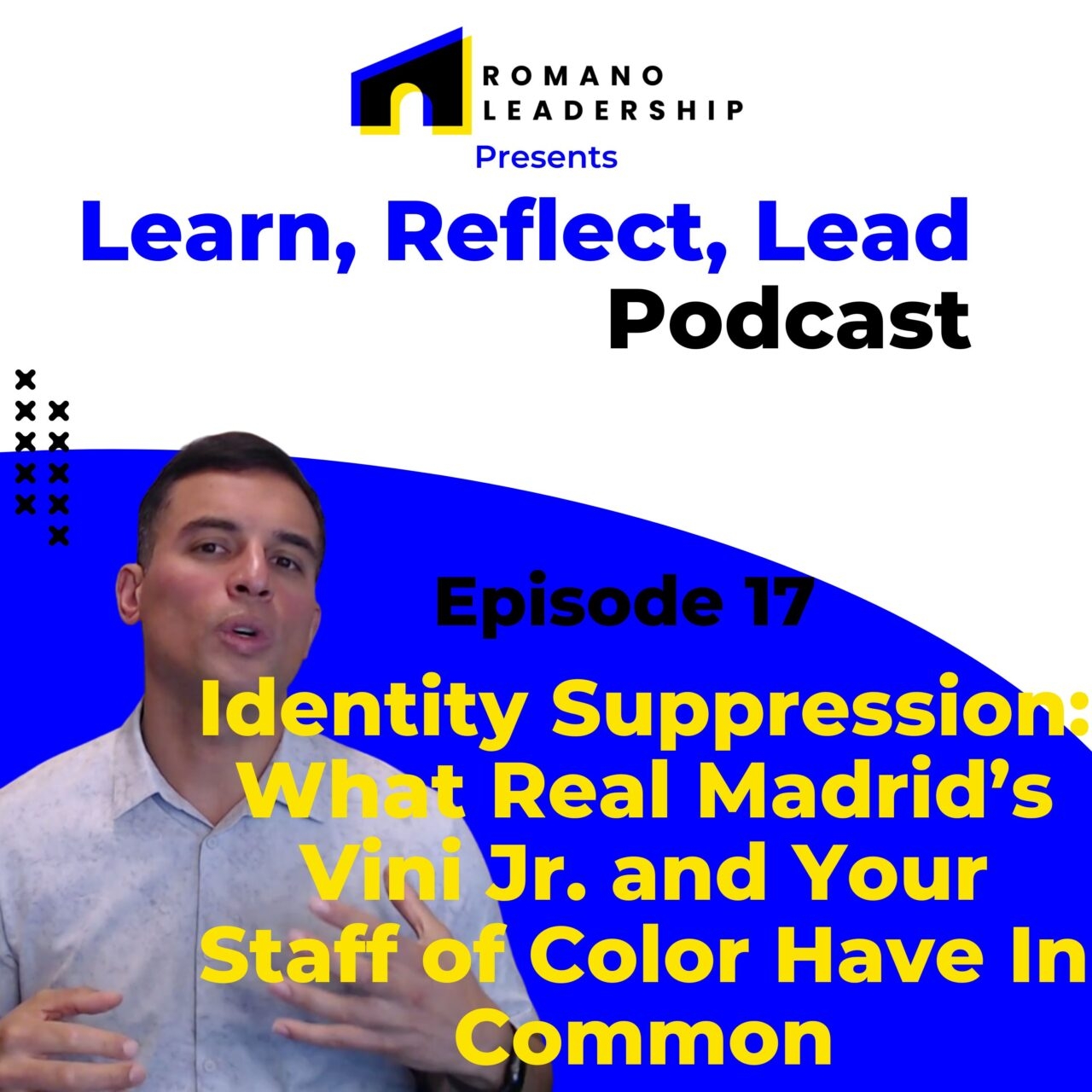Speaker 0 00:00:00 From Romano Leadership, I'm Oscar Romano. This is Learn, reflect, lead, leadership, and dia, a development for mission-driven individuals and organizations. This episode is titled The Coaching Tree Blueprint, unlocking Your Leadership Potential and Impact. This episode is for you if you're an inspiring or experienced leader, seeking to leave a lasting impact by nurturing the growth of future leaders. If you're a manager, aiming to develop your team members into capable leaders who thrive long after your guidance, or if you want to foster a strong culture of leadership development and create a ripple effect of success. Today we're gonna talk about how to grow your leadership impact. Your coaching tree is the number of people you have developed who are now leading others. What does your coaching tree look like? How many people have you developed who are now leading others? How many branches have withered away? To make a difference in the world, you need to develop a coaching tree. The best coaches don't just develop one or two people. They develop multiple leaders who can spread their knowledge around the world. So let's talk about the coaching tree. The coaching tree is not about how many people you have managed or led.
Speaker 0 00:01:33 It's about how many others you've positively impacted that continue to grow and develop into better leaders. Too often we focus on the number of people we directly manage to measure our success as leaders. And while this may be important, it's less important than developing other leaders capable of taking over for us once we, we move on or retire from our position. In other words, we need to focus more on coaching others than managing them directly. When we do so, we create an environment that fosters growth and leadership potential among those around us. If you have held a leadership position for more than a few years, chances are that you've overseen the development of several individuals. If they all took what they learned from you and applied it successfully, you did a great job as a coach. So let, let's think about using your coaching tree as as a metric of source. Some leaders are born with a natural gift for inspiring people. Others develop these skills through hard work and practice. But no matter how you get there, knowing how you measure success as a leader is essential. For example, if you're an entrepreneur, success may be determined by the number of people on your payroll or the amount of revenue you generate
Speaker 0 00:02:57 If you work for someone else. It might be about how many employees are trained under your leadership and how well they perform in their roles after leaving your supervision. The coaching tree is an essential metric and the success of any leader, your measurement of success should be How many people have you trained who are now leading others? I'm not suggesting that you should take credit for your coachee's successes or failures. I'm simply highlighting that it's essential to know how far your influence extends. Here's some questions to help you build your coaching tree. What type of leader do you want to be? What type of legacy do you wanna leave behind? What kind of impact do you wanna make in the lives of others? No. Let me show you how to build your coaching trip. Number one, lead by example.
Speaker 1 00:03:57 The
Speaker 0 00:03:58 Best way to show others how they should behave is by doing it yourself. If you want your players to be hard workers, you must also work hard yourself. If you want them to be respectful, you must also respect them. Number two, be consistent. Consistency is vital in any relationship because it creates trust between two people who work together. When you're consistent, your actions match your words, which makes you much more trustworthy and reliable. Number three, aim to help others. When you help others, they notice and they wanna help you back in return. When you help others, they recognize it and they wanna wanna make sure that they can help you in in anything that you might need. Now, if someone needs assistance with their work or ask questions about something, they'll be more likely to come to you for help if they know that you'll be there for them. Number four, train the trainer. It's up to you to show your coachee how to be a good manager, how to coach their team, how to interview candidates, how to deal with difficult situations. You can help your coachee by guiding the direction of their training and providing feedback along the way on what works and what doesn't work.
Speaker 0 00:05:20 And number five, engage in continuous learning. Being a good coach takes work. You have to study the art of coaching, practice giving feedback, develop your listening skills, and hone your communication skills before you can start helping others with theirs. The more time and effort that goes into becoming a great coach early on in your career, the better your results like you. You can take action and build your coaching trip.
Speaker 0 00:05:49 If you want your organization to be successful beyond your tenure, you must focus on developing people to lead in your place. This doesn't mean that you should abandon your direct role as a leader. It means that you put as much effort into coaching others as you do, managing them directly. When you develop leaders who can lead in their own right, your influence and impact will live long after you've gone. A coaching tree is something that will never wither away. It's an investment that will pay dividends for years to come. You need to invest in your coaching tree and constantly look for opportunities to develop more leaders. So now it's time to commit. What does your coaching tree look like? How many people have viewed positively impacted that continue to grow and develop into better leaders? If the number is enlarged, it's time to do something about it. Start building a coaching tree today and let me know how it goes. Thanks. That's it for this episode of Learn, reflect Lead. Thank you for watching on YouTube or listening via podcast. If you're interested in more, you can find
[email protected] or connect with me on LinkedIn ABER Mono Leadership. If you like this episode, please share with your friends. Subscribe and leave a review. I'm Oscar Romano. Until next time.


